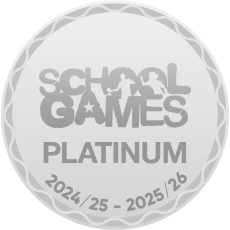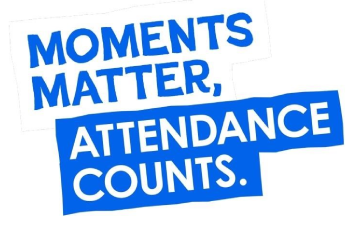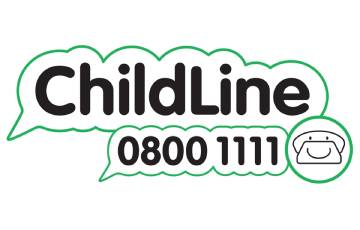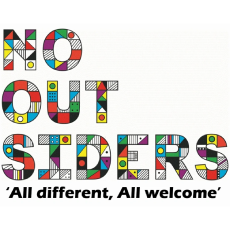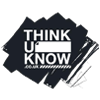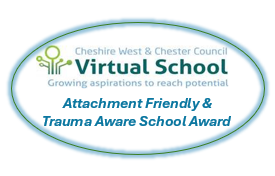English / Phonics
The children at Winnington Park Primary and Nursery School will be able to use the English language fluently and effectively to listen, speak, read and write for a wide range of purposes, using language to learn and communicate ideas, views and feelings. Children will be able to express themselves creatively and imaginatively, as they become enthusiastic and critical readers, writers and speakers. The english knowlege and skills will be taught progressively throughout the curriculum and are taken directly from the National Curriculum (see Year Group MTPs for overviews).
Phonics at Winnington Park
At Winnington Park Primary & Nursery School, synthetic phonics is taught as the main approach to early reading. Daily phonics sessions are taught from Nursery through to Year 1 using the “Little Wandle” programme as well as phonics / spelling interventions continuing through Year 2 to Year 6.
“Little Wandle” is divided into six phases, with each phase building on the skills and knowledge of previous learning. There are no big leaps in learning. Children have time to practise and rapidly expand their ability to read and spell words. They are also taught to read and spell ‘tricky words’. These are words taught at each phase which cannot be phonetically sounded out, and are taught through sight recognition for example, “said, the, was”.
Phase one will have begun in nursery. This phase paves the way for the systematic learning of phonics. During this phase especially, we plan activities that will help children to listen attentively to sounds around them, such as the sounds of their toys and to sounds in spoken language. We teach a wide range of nursery rhymes and songs as well as sharing high quality stories. This helps to increase the number of words they know – their vocabulary – and helps them talk confidently about books. The children learn to identify rhyme and alliteration.
A phonics session takes place at least daily in EYFS and Year 1, involving lots of speaking, listening and games. The emphasis is on children’s active participation and the children focus on the phase that is suited to their individual needs. They are encouraged and taught how to use their phonic knowledge for reading and writing activities and in their independent play.
At each phase, children are taught to recognise individual sounds, pairs and clusters of letters. In phonic sessions children are taught to recognise letters, understand the sounds they make and then blend them together to create words and to segment them to spell words.
The sounds are taught in a specific order (not alphabetically). This enables children to begin building words as early as possible.
Phonics Vocabulary
Phoneme - The smallest unit of sound. There are approximately 44 phonemes in English (it depends on different accents). Phonemes can be put together to make words.
Grapheme - A way of writing down a phoneme. Graphemes can be made up from 1 letter e.g. p, 2 letters e.g. sh, 3 letters e.g. igh or 4 letters e.g ough.
GPC - This is short for Grapheme/Phoneme Correspondence.
When children know a Grapheme/Phoneme Correspondence they are able to match a phoneme to a grapheme and vice versa.
Digraph - A grapheme containing two letters that makes just one sound (phoneme).
Trigraph - A grapheme containing three letters that makes just one sound (phoneme).
Blending- This involves looking at a written word, looking at each grapheme and using knowledge of GPCs to work out which phoneme each grapheme represents and then blending these phonemes together to make a word.
Segmenting - This involves hearing a word, splitting it up into the phonemes (sound talk/sounding out) that make it, using knowledge of GPCs to work out which graphemes represent those phonemes and then writing those graphemes down in the right order.
Phonics at Home
There are many great websites and apps to help support phonics learning at home. For example:
http://www.youtube.com/watch?v=5J2Ddf_0Om8 (for help with pronunciation)
Statutory Year 1 Phonics screening check
The check is a list of 40 words which children will read one-to-one with a familiar teacher. It will assess phonics skills and knowledge learned through Reception and Year 1.
It will check that your child can:
- Sound out and blend graphemes in order to read simple words e.g. n-igh-t
- ·Read phonically decodable one-syllable and two-syllable words, e.g. cat, sand, windmill.
- ·Read a selection of nonsense words which are referred to as ‘pseudo or alien words’.
Reading at Winnington Park
"Reading is central to the school’s curriculum. Leaders make sure that pupils learn to read and love to read. Staff are experts in phonics and early reading. They make regular assessments of how well children are progressing and quickly intervene when somebody starts to fall behind. Staff use a range of interventions to support all children and pupils to keep up with their peers. As a result, pupils develop the skills that they need to read confidently and competently. Older pupils who met with inspectors showed a great love for reading. They were able to talk in detail about literature and discussed a wide range of classic and contemporary authors, poets and illustrators." - OFSTED March 2022
Our aim at Winnington Park Primary School and Nursery is to instil a love of reading in all of our children that will stay with them throughout their lives. We encourage reading for pleasure and hold events such as Reading Festival annually to promote reading.
In Nursery, children choose a book from a range of genres to share with their family at home. In Reception, children take home a phonics book which is closely linked to their phonics level as well as a book of their own choice to share with their families to develop other reading skills. In Key Stage 1 and lower Key Stage 2, children take home a phonics book which enables them to practise the sounds they have learnt in school as well as a colour banded book which matches their reading ability. In Key Stage 2, children choose their own books from the correct colour band which they have been assessed at. Children move through the colours until they reach a level where they become 'free readers'. Reading a variety of books develops good habits and independence. Children read different authors and types of text, such as poetry, stories, reports, explanations and recounts or diaries.
Our aim is for children to become fluent, confident readers who enjoy reading a wide variety of books of different genres, both fiction and non-fiction, and can talk about what they have read, retrieving and inferring information from the text.
Children in Year 1 to 6 are taught reading skills through weekly guided reading sessions with the class teacher, as well as weekly whole class reading sessions. Each class has a class book and all children are read to daily.
Inclusion
At Winnington Park Primary School, we utilise a wide range of interventions for those pupils who are identified as needing additional support. Mrs Flower is our specialist Reading Recovery teacher. Reading Recovery is an accredited school-based literacy programme for the lowest achieving children aged five or six which enables them to reach age-expected levels within 20 weeks. The programme involves a series of daily 30 minute one-to-one lessons with a specially trained teacher. The sessions are different for every child, starting from what the child knows and what they need to learn next. The focus of each lesson is to comprehend messages in reading and construct messages in writing; learning how to attend to detail without losing focus on meaning. Reading Recovery identifies children with literacy difficulties at an early stage in their education and it offers a means of resolving them. The programme ensures that the lowest attaining children will succeed in literacy by not just narrowing the attainment gap for disadvantaged children but closing it.
Some useful links for reading:
If you can’t get to the library, the library can come to you!
https://ebook.yourcloudlibrary.com/library/cheshire/Browse
Why not listen to a story being read?
https://www.storylineonline.net
Not sure which books would be suitable for your child?
https://www.booksfortopics.com/homebooks
A site for your children to explore:
https://www.lovereading4kids.co.uk
Oliver Jeffers ‘A Book a Day’ story telling
https://www.oliverjeffers.com/books#/abookaday/
Guidance for parents and carers with a wealth of resources and websites
https://literacytrust.org.uk/family-zone/
Bug Club
www.activelearnprimary.co.uk
Writing at Winnington Park
At Winnington Park, writing is taught through a mixture of shared, guided and independent writing and where possible, links to the wider curriculum. All year groups use the school literature spine and long term overview to ensure that children are introduced to a wide variety of texts and cover a range of genres. Children are given the opportunity to write on a daily basis through sentence work, short burst writing and extended writing. All year groups will cover fiction, non-fiction and poetry genres each half term. See Winnington Park Long Term Overview for a breakdown of genres and texts.
We regularly have 'Writing Week'. This has a specific focus, either topic based or English based (for example, Eco or Writing Letters for a Purpose). This week is aimed at inspiring children and work produced is celebrated with this whole school.
Equality of opportunity at Winnington Park Primary School means that all children, taking account of gender, age, ability, disability, ethnic origin, faith, culture, social circumstances and sexual orientation have full access to all the curricular, pastoral and social opportunities offered by our computing curriculum.
Handwriting
At Winnington Park, cursive script is taught throughout the school starting in Year 1 (when it is appropriate for the individual). Handwriting is taught discretely as well as being embedded throughout all teaching and all staff model cursive script in their writing.
Spelling, Punctuation and Grammar
Phonics and spellings are taught daily in the Foundation Stage and Key Stage 1 through discrete phonic/spelling sessions. In Key Stage 2, spelling, puncuation and grammar are taught daily through discrete sessions. Spelling, grammar and punctuation are all taken from the National Curriculum. Spellings are taught through a scheme called Rising Stars and children are tested weekly on the spelling rules.












